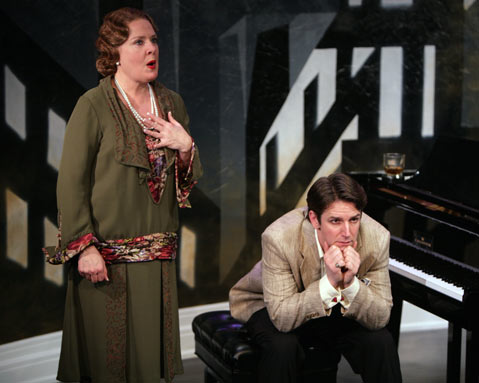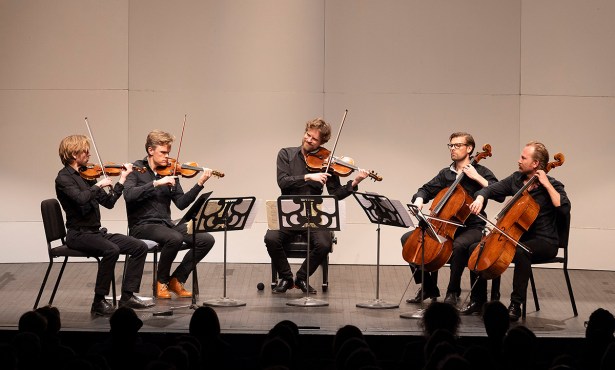Souvenir at the Ensemble
Bad Opera Makes Good Theater

An unshakable belief in our own specialness—bolstered, when necessary, by self-deception—has long been a facet of the American character. It has helped us accomplish great things; it has also guided us into unwinnable wars. Perhaps no one personifies this willfully blind self-regard better than Florence Foster Jenkins, an astonishingly untalented singer who considered herself uniquely gifted, and considered it her duty to share that gift with the world. During the 1930s and ’40s, she developed a fan base of incredulous and amused listeners who howled with delight at her mangling of Mozart. Thousands of them—many with handkerchiefs in their mouths to muffle their laughter—showed up for her crowning achievement, a sold-out 1944 recital in Carnegie Hall.
Her story, as told by her long-suffering accompanist Cosme McMoon, is the focus of Stephen Temperley’s off-Broadway hit Souvenir, which continues through February 28. The play is a bit thin—the two hours of material could have easily been condensed into a 90-minute one-act—but in the hands of director Michael Evan Haney, it’s consistently hilarious and surprisingly poignant. Thanks to his highly polished production, what could have been a one-joke evening turns into a genuinely emotional journey. Mirroring the feelings of the frustrated pianist (who agrees to work with her because he desperately needs money), our first reaction to Jenkins is disbelief; we guffaw at her singing voice just as her “fans” did. But her enthusiasm, sincerity, and lack of inhibition gradually endear her to both the accompanist and the audience. By the end, we’re taking her side against the cruel mob.
Neva Rae Powers and Edwin Cahill have played these roles before—numerous times, in Powers’s case—and their experience is evident in their command of the stage. Cahill, who also gets to show off his impressive piano chops, nicely conveys the character’s shifting emotional allegiance, even as he pulls off some great physical comedy bits (including, at one point, holding on to the piano for dear life). Powers gives Jenkins an inherent dignity and graciousness that makes the ridiculousness of her performances that much more amusing. In her version of Jenkins’s voice, which is somewhat different than the actual recording we hear, musical notes emerge as strange, startling sounds reminiscent of the squeaks and squawks of jungle animals. (No large tropical birds are strangled during the course of this production; it just sounds that way.) Matthew Holstegge’s simple, art deco-tinged set and Theresa Ham’s gloriously tacky costumes are both pitch-perfect.



